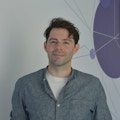Jose Ernesto Canton-Josh, Ph.D.

Jose Ernesto Canton-Josh grew up in El Salvador and moved to the U.S. when he was twenty years old to receive an undergraduate education. His own exposure to academia and neuroscience was relatively late, but once he found the joy of scientific discovery it became his passion. He has years of experience using transgenic lines, modern viral tools, acute slice electrophysiology, viral tracing techniques and behavioral paradigms. Jose is proficient in writing analysis code in MATLAB and Python. He believes being a good mentor and teacher is the most important quality for a principal investigator. As a recent Ph.D. graduate with the hopes of one day starting his own lab, Jose is very excited to share his skills and help train new scientists. He has had great experiences mentoring spectacular undergraduate scientists during his graduate work; these trainees were included as authors on his publications, and he helped them apply to graduate and medical schools.
Principal Investigator: Lucas Pinto
Fellow: Hein Kim
Project: The prefrontal cortex (PFC) is a cortical region crucial for working memory and decision-making. Dysfunction of the PFC has deeply established links to depressive disorders, attention deficit disorders, autism and schizophrenia. Understanding the fundamental computations of the PFC has direct implications for translational neuroscience and public health. This research project involves examining local neuronal micro-circuitry of the PFC regulating decision-making and tackles this complex question by using in vivo two-photon imaging of calcium sensor (GCaMP) activity in mice making navigational decisions in virtual reality. Different subtypes of neurons contribute precisely to computations performed by the PFC. By using transgenic lines, the researchers selectively record activity patterns of these subtypes, and, by combining these techniques with optogenetic tools, they change the activity of single neurons and measure how those disruptions affect circuit activity and decision-making. During the time in the lab, the trainee will spend most of their time learning how to analyze two-photon calcium sensor data. These are large rich datasets and after basic training Jose would be excited to help the trainee design a semi-independent analysis project. Additionally, there will be many opportunities to help with viral tracing experiments and fundamental histological assays.